It seems to me that this is a murder mystery where the murders themselves are the red herrings…
The Chimes of Midnight ROBERT SHEARMAN










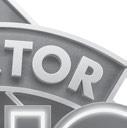


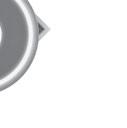


The Chimes of Midnight










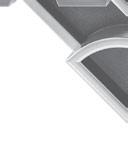



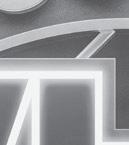





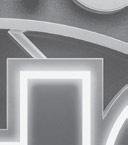





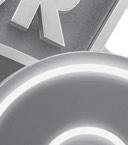





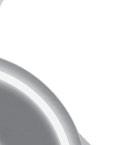
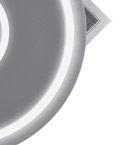


The Chimes of Midnight rOBert SHearMan

BBC BOOKS
UK | USA | Canada | Ireland | Australia India | New Zealand | South Africa
BBC Books is part of the Penguin Random House group of companies whose addresses can be found at global.penguinrandomhouse.com
Penguin Random House UK One Embassy Gardens, 8 Viaduct Gardens, London SW11 7BW
penguin.co.uk global.penguinrandomhouse.com
First published by BBC Books in 2025 1
Copyright © Robert Shearman 2025
Based on the audio drama produced by Big Finish in 2002 The moral right of the author has been asserted.
No part of this book may be used or reproduced in any manner for the purpose of training artificial intelligence technologies or systems. In accordance with Article 4(3) of the DSM Directive 2019/790, Penguin Random House expressly reserves this work from the text and data mining exception.
Doctor Who is produced in Wales by Bad Wolf with BBC Studios Productions. Executive Producers: Jane Tranter, Julie Gardner, Joel Collins, Phil Collinson and Russell T Davies.
Typeset in 11.7/16pt Calluna by Six Red Marbles UK, Thetford, Norfolk Printed and bound in Great Britain by Clays Ltd, Elcograf S.p.A.
The authorised representative in the EEA is Penguin Random House Ireland, Morrison Chambers, 32 Nassau Street, Dublin D 02 YH 68
A CIP catalogue record for this book is available from the British Library i SB n 9781785949593
Penguin Random House is committed to a sustainable future for our business, our readers and our planet. This book is made from Forest Stewardship Council® certified paper.
Acknowledgements 233
To my wife, Janie – the first person to read the script back in 2000, the first person to read the novel 25 years later – and the first person to tell me this was a good one. She always gives me the confidence to write the very silliest of things.
And to all the people who write every Christmas Eve to tell me that listening to Chimes each year has become a family tradition, and who threaten me with plum pudding.
Prologue
He realised that he was alive again. And he wasn’t quite sure how he felt about that yet.
Surprised? Well, maybe. Let him consider the matter a while. He’d been alive before, so it really oughtn’t to have been much of a surprise. He’d been alive many, many times. But the last time he died he’d let himself believe that this really might be an ending – this could be the one, that actual moment of extinction. It had given the death a certain curious frisson he had almost enjoyed. No, then – on balance, no – of course it wasn’t surprising that he was alive once more. But it was surprising that he had been surprised, and any surprise was an interesting distraction, and so that would have to do.
He tried to move. To flex his muscles, anything. No response from them. Let’s not jump to conclusions, he thought. Maybe my muscles need to warm up. It doesn’t necessarily mean that I don’t have any.
And then he thought, I do hope that this life will be better than the last one.
Here he was, newborn, and yet he found he could remember all his previous disappointments and failures. So many of them. It didn’t seem fair, to be but a few seconds old, and already to be burdened with such annoying memories. It was pitch black. He couldn’t see anything. In some of his lifetimes he’d been able to see lots of things. Once in a while he’d get a view of all the activity going on about
him. The hustle and bustle of the servants, and there he was with a ringside seat! Why, it was almost exciting. But he was never able to interact with any of it. That made him sad. That made him angry. Perhaps it was better that this time he had been born in the dark, in the pitch dark, in the unrelenting suffocating dark. Perhaps he didn’t have any eyes. Perhaps this time he’d simply been born without any.
He felt the urge to touch his face, to put his fingers all over it. Check the shape of his jaw, his ears, his forehead. Check that the eyes, if he did have them, were in the right position, one either side of the nose, wasn’t that the way it went? But he still couldn’t move. He had forgotten that, hadn’t he? He tried once again to will his muscles into action, he heaved. Couldn’t do it.
He wanted to scream, but now he was so frightened he’d find out he didn’t even have a mouth to scream out of, and that would be simply awful, wouldn’t it? That sort of discovery could drive a person mad! So he didn’t make a sound. So long as he refused to make a sound, he could make believe he could make a sound if he only wanted to. If he had a mouth to open, let it be kept tight shut for now.
A new thought. Perhaps the reason he couldn’t move was because he was in a box. Yes. Crammed in so fast that there was no room for movement, he couldn’t get up, he couldn’t turn his head. So it wasn’t that he didn’t have the physical capability to move, but that he was being forcibly prevented from doing so. A box. He became certain, positively certain of it. Was this a good thought? He wasn’t sure it was. He’d been buried alive. He was buried alive! He was in a – a what? – coffin? Yes, and the wood of the coffin was all about him, and the lid sealed fast just an inch above his face.
Except it couldn’t really be a coffin. Because the box had been
so perfectly moulded to the exact shape of his body. There was no give anywhere, he was completely encased on all sides.
As tight about him as a skin – a skin of wood, and also brick, and also stone. And he wondered whether other people ever felt imprisoned within their own skin. Covering you all over, every little scrap of you, pulled taut and hard around your bones and organs, all your innards boxed in with no way to escape. How could anyone cope with the sheer claustrophobia of it?
Panic. He couldn’t help it. He felt his breath quicken – so there was breathing. Heart beating faster – there was a heart inside him somewhere then, good, that was good. And there was a mouth opening, and there was a scream popping out at last, he heard it – desperate, terrified, someone help him, anyone help him – please, can’t someone dig me out!
There was no rescue coming. And this life wasn’t going to be any better than the last life he’d had, or the one before, or the one before that. (Maybe better than the one before that one, though. That had been perfectly horrid.)
The scream was starting to annoy him, and he was no longer quite sure it was even real. (Shouldn’t he have needed to take a breath by now?) But it was something to do, if he was doing it, and something to imagine, if he wasn’t.
This was no way to experience life. And there was nothing here to sustain it. No air, no food, no space – certainly no purpose. So he supposed this new life of his would be over fairly shortly. There was some sort of mercy to that, at least.
Dare he hope this would be the last time he died? No. He wouldn’t be so naive again. He’d be back, sooner or later.
Best not die in a panic. He silenced the scream. He steadied the breathing he wasn’t sure was real, closed the eyes he wasn’t sure he had. And as he waited for any of the vital functions he
might have to shut down, he whiled away the time losing himself in spectacular dreams, in fantastical imaginings. He imagined a little blue box. Tumbling through time and space, with no idea where it was going to land.
Part One Without
Something was troubling the Doctor, and he didn’t quite know what. And it was the not quite knowing that was troubling him all the more.
Now in his eighth incarnation, the Doctor had put to one side the dark solemnity that seemed to have dogged some of his predecessors, and preferred to meet life full on, with a broad smile and as much charm as he could flash at any crisis he encountered. Sometimes the strategy worked, and sometimes it didn’t, but he had fun along the way.
So being troubled didn’t suit him at all. He felt it right there at the back of his head, a little ball of worry niggling away. It had been there for a while. He’d tried his best to ignore it and had thrown himself into various adventures of high jeopardy so he’d have something else to think about. But the worry didn’t take the hint. It kept bobbing to the surface of his mind. And he knew he was going to have to confront it sooner or later.
It was about Charley. Something was wrong with Charley.
But how could anything be wrong with Charley? Charley was magnificent.
Over the centuries the Doctor had travelled in the TARDIS with many companions from planet Earth. When they joined him they always needed some period of adjustment. It was hard to get your head around the fact that everything you knew about science was turned upside down, and that you could now travel anywhere in the whole of time and space. And all within a vast
spaceship that just happened to resemble a small blue police telephone box found in one small country in one small chunk of the twentieth century. The Doctor got it. It was a lot for them to take in, to realise that this was their new reality and not some insane dream. He wasn’t sure that some of his companions had ever quite managed it.
There’d never been one who had adapted as fast as Charley Pollard. He’d asked her what she wanted most in life, and she’d just grinned and said, ‘Adventure!’ It didn’t matter whether he took her to the distant past or the far-flung future or to some remote corner on the fringes of the galaxy, she was always hungry for all he could show her. Her enthusiasm for life quite took the Doctor’s breath away.
He supposed he shouldn’t be surprised by that. She was a natural. Who else had he ever known who would toss aside a life of easy privilege and run away from home, just because there was a vast world that needed to be explored? Disguise herself as a boy and stow away on board an airship bound for India? The Doctor smiled at the thought. Well, of course, there was one other person that he could think of. And, like Charley, he too would inevitably have chosen the particular airship that was destined to crash – they clearly both had a nose for finding trouble.
The airship had been the R101, built by the British to fly around the world nonstop. In 1930 it had been the greatest technological feat of the age, a demonstration of humanity’s innate desire to push at the very limits of what was possible. And it hadn’t been possible – not then, in any case, not with that airship – and on its maiden voyage it had lost control and pitched nose down into a forest in France. The five million cubic feet of flammable hydrogen keeping the ship afloat had exploded on impact, turning the R101 into a tremendous fireball. There were a handful of lucky survivors. Charley would not have been one of them.
The Doctor had rescued Charley from certain death that day. And at the time he had felt almost glib about it – wasn’t this what he always did, saving people? Each and every one of his companions had been rescued by him – he popped up in their lives and snatched them away from a time stream that would only one day have ended in their deaths. The difference was that their deaths might be anything from sixty or seventy years away, and the details of them were vague and undetermined. But Charley had only had a few scant seconds to go.
The Doctor had spent an eternity cheating death, and he knew the toll that took on him. That every time he lost a face to regeneration, he lost a little bit of innocence with it.
Charley Pollard was kind and compassionate. She still talked about the friends she had made on Chloris and on Mars, people the Doctor had already forgotten about. She kept each and every adventure they shared alive in her heart, the Doctor could see that. But she never spoke of what had happened aboard the R101. What it had been like to look down at the ground rushing up fast towards her. With all the flames and all the screaming, and the certainty that her life was done. She never mentioned any of the people who had died, or the fact that she should have died with them.
‘Penny for your thoughts!’ said Charley. ‘Doctor, you’re looking terribly serious!’ And he realised he’d been staring at her. This brave young woman whose life he’d saved, how old was she, eighteen, nineteen? Her pretty heart-shaped face still so full of youth and hope.
‘I’ve decided it’s high time I stopped just driving you around the place,’ he said. ‘I’m not a chauffeur, you know.’
Charley frowned. ‘You don’t mean . . . ?’
‘I do mean! It’s your turn to do the driving for once!’
Charley’s face shone with absolute joy. She joined the Doctor at the large hexagonal console that dominated the TARDIS . It was composed of any number of dials and switches and buttons that gleamed with alien sophistication; it also had an entire panel that was held together by string. The whole thing festooned with sticky notes warning the operator to ‘Press This First’ and ‘Don’t Press At All’.
‘What do I do?’ she asked eagerly. ‘Tell me where I’m supposed to start!’ He watched her fingers dance; she couldn’t wait to find out which button to press first.
‘Flick that switch there, give that dial a good twist – you can twist it more than that, that’s the idea! And when you’re ready to take off, just throw the lever.’
‘But where am I taking us?’ she asked. ‘Don’t I need to set coordinates or something?’
The Doctor pulled a face. ‘Oh, let’s not bother with boring old coordinates! I never used to worry about them. Do you know, there was a time I travelled for centuries without ever knowing where I was going to end up next?’
‘Yes,’ said Charley wryly. ‘I can well believe it!’
‘Let’s just find out where you want to take us,’ said the Doctor. ‘Really want to, deep down, without even knowing.’
‘All right,’ said Charley, and she put her hand gently upon the lever. ‘It feels as if I’ve got the entire universe at my fingertips!’ She turned to the Doctor, looked at him seriously. ‘Thank you.’ He laughed, and she laughed back, and then, decisively, she pulled the lever hard.
For just a moment the TARDIS seemed to hesitate; as if it did not understand this, as if it wanted the Doctor back at the controls. But the Doctor nodded his head encouragingly, and gave the console an affectionate thump for good measure. And so slowly, but surely, and with gathering confidence, the time
rotor began to rise and fall, and the Doctor and Charley were on their way.
‘So, where are we, Charley?’
‘Somewhere dark. I can’t see a thing.’
She’d been so eager to leave the TARDIS and find out where she had brought them. But now Charley just stared out into the overwhelming blackness around her, trying to find even the slightest glimmer of light. She supposed that the universe must be full of blackness, but when the Doctor was in charge, he opened the doors to cityscapes built of gleaming green ice or oceans of burnt vermilion. She couldn’t help but feel the lack of colour before her was rather a let-down.
It was so dark she couldn’t even see the Doctor come to her side. ‘You’re right, it really is very dark, isn’t it? What happened, Charley, did you pull the lever with your eyes closed?’ He laughed. ‘I do love a good bit of dark, though, don’t you?’
‘Within reason,’ said Charley. ‘I think you can have too much of a good thing.’
‘Oh, it all just enhances the mystery! The sheer anticipation of not having a clue where we are!’ She heard him flap his arms to his side, then sniff. ‘Mind you, quite how the TARDIS expects us to enjoy a good mystery when we can’t see anything . . . I’ll go and fetch the torches. Pretty sure I put them in a box somewhere.’ He disappeared back into the TARDIS .
Charley stayed in the dark. She tried to find something ominous within it, something of interest, and didn’t. ‘Do you have any idea where we might be?’
She heard him rummaging around. ‘The TARDIS isn’t telling me a thing. Probably needs to recalibrate. She does tend to get a bit sulky if I make her do these random jumps. But that’s all right. We can investigate for ourselves!’
‘If there’s anything to investigate,’ said Charley. She couldn’t keep the disappointment out of her voice. She’d wanted to take him somewhere magical, somewhere that would surprise him. So for once he could gaze out upon a new world that was beautiful and strange and alien. She wanted to take his breath away. She wished she could stop wanting to impress him. It made her feel embarrassed, knowing she was trying so hard. She would sometimes get shy in his company, and she’d cover it by making a joke, something silly that made her immediately want to bite her tongue. Why did she do this? He didn’t ask her to be impressive. He didn’t ask anything of her. Maybe that was the problem. She’d once made the mistake of asking the Doctor how old he was. ‘Oh, I don’t know,’ he’d said. ‘I’m not sure I even have an age any more. Why, how old do you think I am?’ And she told him that he looked like a man in his late thirties, maybe. Mature, but still with a boyishness to him. His eyes shone when he spoke, and his face was kind and intelligent, and he was handsome. ‘Handsome, am I?’ the Doctor had said, and Charley had blushed bright red. He’d frowned. ‘I haven’t had this face for long, and I haven’t really got used to it yet. Is this one of the handsome ones? Well, well!’ And he’d grinned at her briefly, and turned back to the TARDIS console, and changed the subject entirely.
He cut quite the figure in his velvet frock suit. He seemed to Charley the very epitome of an Edwardian gentleman of fashion. Her parents had suggested that they try to find her some suitable bachelor to court when she’d turned eighteen, and she’d been horrified by that – she told them she wouldn’t marry anyone, not ever. It had been one of the reasons she had run away from home. Not because she thought Mother and Father would suddenly spring some wedding upon her – the Pollards were far too genteel for anything like that – but because they clearly didn’t understand her at all.
But, she sometimes thought, if they could see her with the Doctor, they would surely have approved. Perhaps not of the TARDIS , or the peculiar planets he took her to – that would have scandalised them. But the Doctor himself, charming and debonair and exuding unforced authority – oh, they would have invited him to every single one of their garden parties and Sunday luncheons and found a way to place Charley in his very eligible way.
As she stared into the black, she heard him in the TARDIS , clattering about as he tried to find the torches. It was tempting to give up and go inside and join him, but maybe this was a chance to impress him after all. ‘How can I investigate?’ she asked. ‘It’s so dark I can’t see my hand in front of my face.’
‘Sight’s just one of your five senses, isn’t it?’ he called back cheerfully.
And she supposed that was true. All right. She rallied herself to the challenge. She held her breath, she listened intently. ‘Well, I can’t hear anything,’ she said.
‘Well, even that might be a clue!’
‘Not a very interesting clue.’
‘No, fair enough. How about smell?’
Charley took a big sniff, and once again there was nothing – but then . . . no. ‘It sounds weird,’ she said. ‘But I think I can smell fruit.’
‘Really?’
She sniffed again. It was clearer this time. ‘It is fruit! Oranges, lemons. I can definitely smell lemons. I think I can taste them too. They’re sweet, they’ve been sugared!’
‘Silent and fruity,’ said the Doctor. ‘It sounds enchanting! Right, got one torch. Where on earth’s the other . . . ?’
‘And now touch,’ said Charley. Carefully she raised one hand straight out in front of her. It seemed to get swallowed up within
